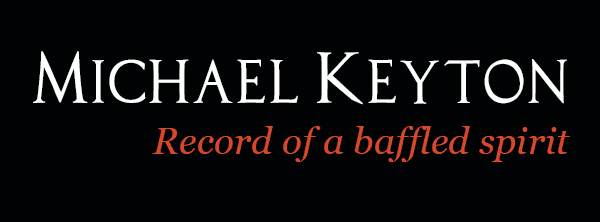When a young man
walked into a shop and purchased four footballs, the shopkeeper may have asked
why, and Captain Nevill of the 8th East Surrey’s may have told him, or then
again not. It was 1916.
Wilfred Percy Nevill
was man of strong opinions. He took war seriously, standing up on the fire-step
and shouting insults at the Germans across no man’s land. He did this most
evenings.
Captain Nevill
also had courage; he knew what made a man tick - a man of 1916. I doubt his
example would resonate in Iraq
or Afghanistan
today, though no doubt it would confuse the enemy.
His problem was
simple. His men were to lead the assault near Montauban. They had never led an
attack before and he was concerned.
Hence the four
footballs.
One for each of
his four platoons.
He offered a prize
to the first platoon to kick its football across all the way up to the German
front line. When the whistle blew, they were ready. One platoon painted the
following inscription on its ball:
The Great European Cup
The Final
East Surreys v Bavarians
Kick Off at Zero
Captain Nevill was
the first to kick off. One eyewitness recorded:
'As the gun-fire died away I saw an
infantryman climb onto the parapet into No Man's Land, beckoning others to
follow. As he did so he kicked off a football; a good kick, the ball rose and
travelled well towards the German line. That seemed to be the signal to
advance.' (Pte L.S. Price, 8th Royal Sussex)
They dribbled their
four footballs for a mile and a quarter right into the German trenches. As Sir
Arthur Conan Doyle later reported in The British Campaign in France and Flanders,
1916:
‘No sooner had the troops come out from cover than they were met by
a staggering fire which held them up in the Breslau
Trench. The supports had soon to be pushed up to thicken the ranks of the East
Surreys - a battalion which, with the ineradicable sporting instinct and
light-heartedness of the Londoner, had dribbled footballs, one for each platoon
across No Man's Land and shot their goal in the front-line trench.’
After the battle
roll calls were held. 700 names were called. Less than a 100 answered – some of
them winners of the football competition; they didn’t receive their prize – for
Captain Nevill, too, had been killed.
Just before the battle, in one of his last letters to his wife, (June 28) Captain Nevill wrote:
‘As I write the
shells are fairly haring over; you know one gets just sort of bemused after a
few million, still it'll be a great experience to tell one's children about.’
He never did tell
his children but he did become a national hero and the subject of a
tub-thumping poem.
THE GAME
On through the
hail of slaughter,
Where gallant comrades Fall,
Where blood is poured like water,
They drive the trickling ball.
The fear of death before them
Is but an empty name.
True to the land that bore them-
The SURREYS play the game.
On without check
or falter,
They press towards the goal;
Who falls on Freedom's alter,
The Lord shall rest his soul.
But still they charge the living
Into that hell of flame;
Ungrudging in their giving,
Our soldiers play the game.
And now at last is ended
The task so well begun;
Though savagely defended,
The lines of death are won.
In this, their hour of glory,
A deathless place they claim,
In England's splendid story,
The men who played the game.
Post script.
If I've sound over
light-hearted here it’s because otherwise I’d cry. And for those tempted to think
that this was a Pythonesque ‘one off,’ an exception, read this and consider.
Unlike Captain Nevill, Frank Edwards of the London Irish survived.
He died in 1964 and may have been aware of the Beatles - or even the Stones.





